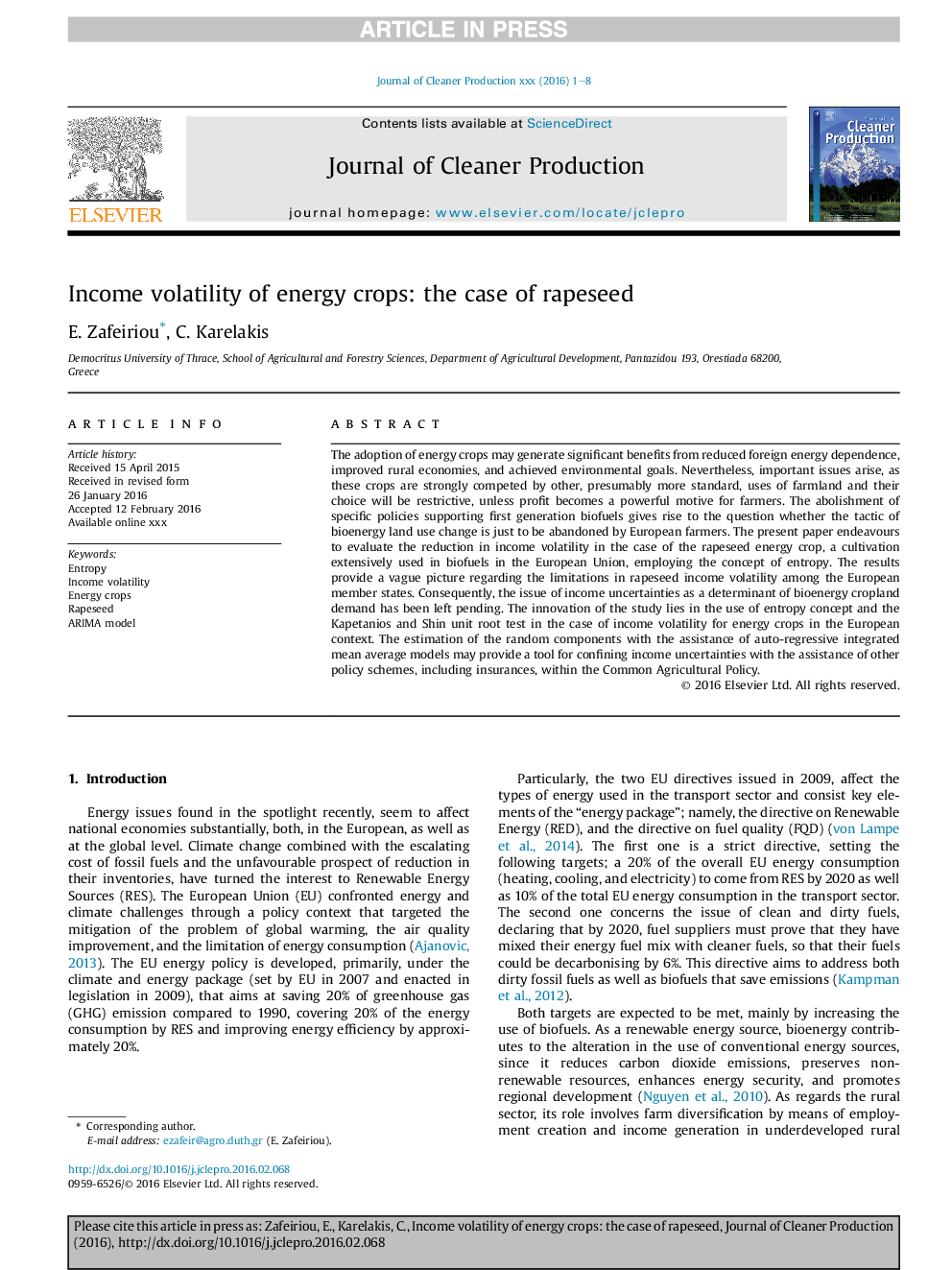| Article ID | Journal | Published Year | Pages | File Type |
|---|---|---|---|---|
| 8102388 | Journal of Cleaner Production | 2016 | 8 Pages |
Abstract
The adoption of energy crops may generate significant benefits from reduced foreign energy dependence, improved rural economies, and achieved environmental goals. Nevertheless, important issues arise, as these crops are strongly competed by other, presumably more standard, uses of farmland and their choice will be restrictive, unless profit becomes a powerful motive for farmers. The abolishment of specific policies supporting first generation biofuels gives rise to the question whether the tactic of bioenergy land use change is just to be abandoned by European farmers. The present paper endeavours to evaluate the reduction in income volatility in the case of the rapeseed energy crop, a cultivation extensively used in biofuels in the European Union, employing the concept of entropy. The results provide a vague picture regarding the limitations in rapeseed income volatility among the European member states. Consequently, the issue of income uncertainties as a determinant of bioenergy cropland demand has been left pending. The innovation of the study lies in the use of entropy concept and the Kapetanios and Shin unit root test in the case of income volatility for energy crops in the European context. The estimation of the random components with the assistance of auto-regressive integrated mean average models may provide a tool for confining income uncertainties with the assistance of other policy schemes, including insurances, within the Common Agricultural Policy.
Related Topics
Physical Sciences and Engineering
Energy
Renewable Energy, Sustainability and the Environment
Authors
E. Zafeiriou, C. Karelakis,
